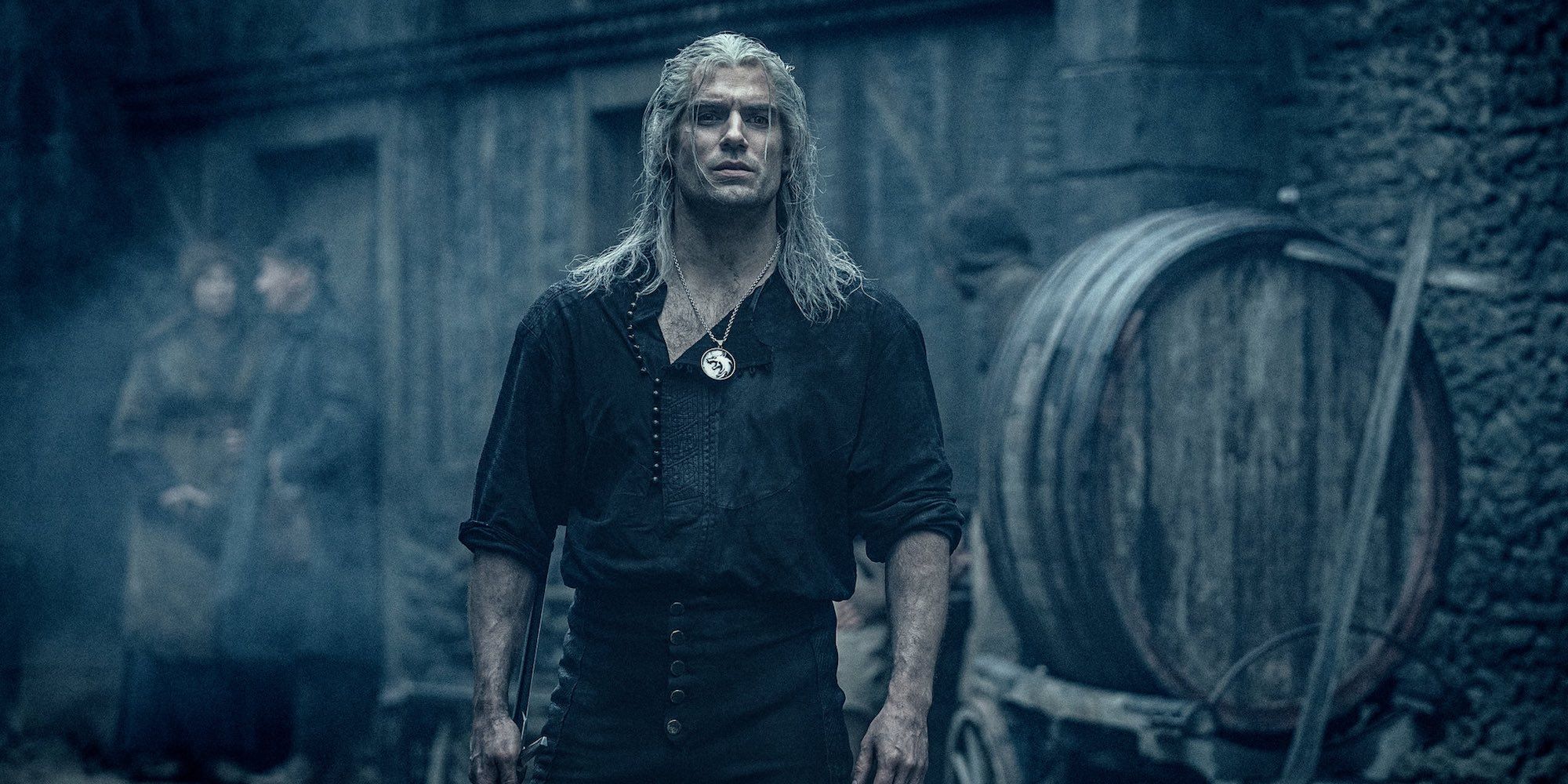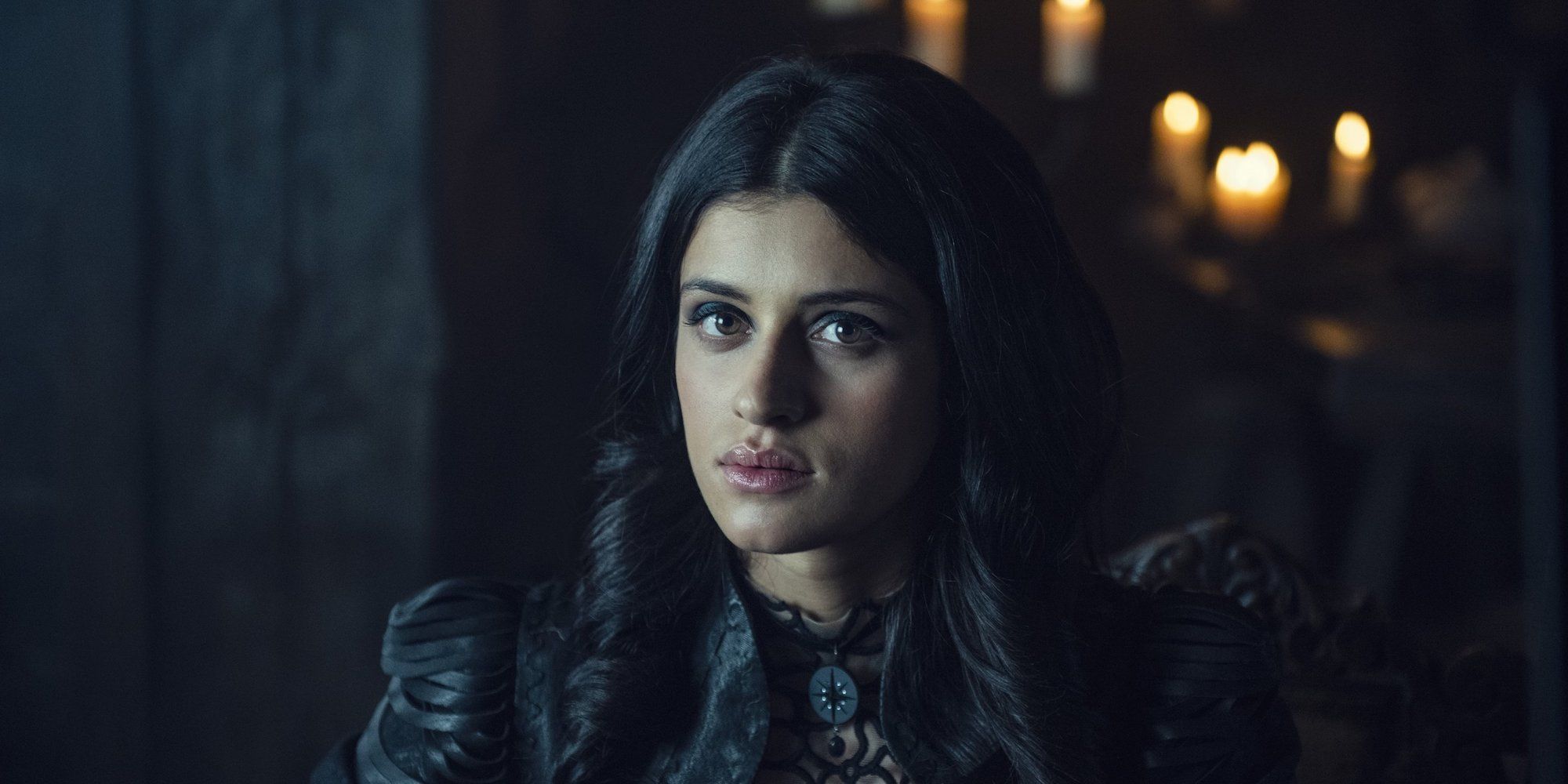Netflix's new show The Witcher has been in very high demand despite bad reviews. Releasing just a week ago on December 20th, the eight-episode season 1 is an adaptation covering part of the first book in the The Witcher series from Polish fantasy author Andrzej Sapkowski. It stars Henry Cavill, also known as Superman in Man of Steel, as Geralt of Rivia, the titular Witcher, a genetically altered human trained to hunt down the dangerous and magical monsters of the world.
The Witcher season 1 also introduces us to Anya Chalotra's character Yennefer, a rogue sorceress, and Freya Allan's Ciri, a princess with a magical talent on the run from the war that collapsed her homeland. These three form the core cast of the series overall, although they spend most of this season separated from each other as they try to find their way around their war-torn continent. Showrunner Lauren S. Hissrich has said that The Witcher season 2, which was confirmed before season 1 premiered, will be more focused and keep the cast closer together. Whether this means the confusing timeline of The Witcher season 1 will be a one time choice or not is yet to be seen.
Now, Business Insider has laid out the contradiction in The Witcher's reception within this first week of airing. On review aggregator site Rotten Tomatoes, The Witcher has a rotten 56 percent critic score based on 57 reviews, but holds a fresh score of 93 percent from 12,000 user ratings. This pattern of critics being sour on a show and the wider audience loving it is not new, and has shown up time and again, including with the original Star Trek series.
The results from television analytics firm Parrot Analytics are also reported by Business Insider, namely how in-demand the series has been the week of its release. The Witcher came in third for original series streaming last week, behind only The Mandalorian on Disney+ and Stranger Things also on Netflix. This is a pretty good placing for a new series, especially a fantasy series unknown outside fans of the books and video game adaptations by CD PRojekt Red (which, incidentally, is how Henry Cavill learned about The Witcher series to begin with and how he fell in love with it). Business Insider describes Parrot Analytics' method by saying the firm "measures 'demand expressions,' its globally standardized TV-demand measurement unit that reflects the desire, engagement, and viewership of a series weighted by importance."
Interpreting critical reception versus audience reception can be difficult. It's unclear if everyone is so excited for a beloved franchise that it takes a moment for disappointment to sink in, or if the critics are just out of touch with what people actually enjoy in a show. The high demand Parrot Analytics has measured can help nervous fans who worry that Netflix might see a critical panning as a bad sign. After all, season 2 is already confirmed for 2021 and Hissrich says they have enough material to write seven full seasons of The Witcher if they get the chance.
Hopefully The Witcher season 2 clears up some of the issues people may have had, like with the confusing timeline or the flood of new characters and concepts the show introduces bring sometimes, and maybe it will manage to be a hit with even the critics.
Source: Business Insider


